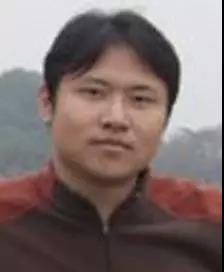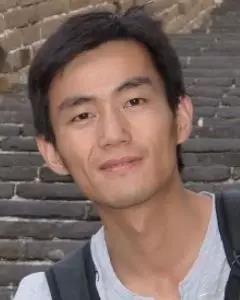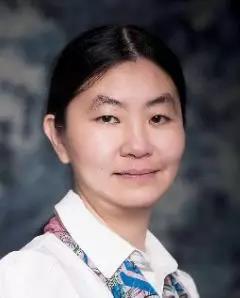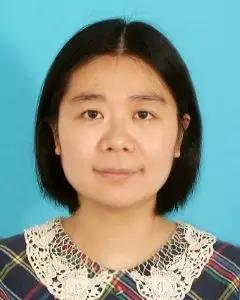硬件是构建信息系统的基石,本论坛将围绕处理器、人工智能、IoT、金融计算等关键芯片,介绍硬件安全隐患的攻-防-检研究,探讨从硬件安全到信息系统安全的过去、现在与未来。
时间:2018年10月25日下午13:30 - 17:30
地点:杭州国际博览中心会议区四层403会议室
硬件是构建信息系统的基石,硬件安全隐患是威胁信息系统安全的重要来源。近年来,关键芯片(如处理器芯片、人工智能芯片等)已被暴露出大量安全隐患。例如,叙利亚军用雷达微处理器被植入硬件木马,关键时刻被触发造成雷达短暂失效,使以色列轰炸机成功炸毁叙利亚疑似核反应堆。又如,Intel处理器的Meltdown/Spectre漏洞可导致数据泄露。近来,中国间谍芯片的报道更是扑朔迷离。同时,一些应用领域(如IoT、金融计算等)对硬件安全也有着新的要求。本论坛将围绕硬件安全,聚焦于处理器、人工智能、IoT、金融计算等关键芯片,针对硬件木马与硬件漏洞等硬件安全隐患,从攻、防、检三个方面进行讨论,探讨攻击者如何实现硬件木马、如何利用硬件漏洞开展攻击;设计者如何在晶体管层、电路层、体系结构层建立安全防护机制;检测者如何验证硬件设计是否存在安全隐患、如何检测生产制造后的芯片是否存在安全隐患。最后,围绕从硬件安全到信息系统安全的议题,回顾过去,畅想未来。
主席

李晓维
简介:中科院计算所研究员、中国科学院大学教授,主要研究VLSI测试、容错计算、硬件安全。担任计算所学位评定委员会副主席、计算机体系结构国家重点实验室常务副主任;现任 CCF理事、会士,JCST副主编;曾任CCF常务理事、容错计算专委主任、CAD学报副主编。兼任IEEE CS TTTC 副主席,IEEE TCAD、JETTA和JOLPE编委。
特邀嘉宾

K.-T. Tim Cheng
K.-T. Tim Cheng received his Ph.D. in EECS from the University of California, Berkeley in 1988. He has been serving as Dean of Engineering and Chair Professor of ECE and CSE at Hong Kong University of Science and Technology (HKUST) since May 2016. He worked at Bell Laboratories from 1988 to 1993 and joined the faculty at Univ. of California, Santa Barbara in 1993 where he was the founding director of UCSB’s Computer Engineering Program (1999-2002), Chair of the ECE Department (2005-2008) and Associate Vice Chancellor for Research (2013-2016). His current research interests include hardware verification and security, design automation for photonics IC and flexible hybrid circuits, memristive memories, mobile embedded systems, and mobile computer vision. He has published 450+ technical papers, co-authored five books, advised 45+ PhD theses, and held 12 U.S. Patents in these areas. Cheng, an IEEE fellow, received 10+ Best Paper Awards from various IEEE and ACM conferences and journals. He has also received UCSB College of Engineering Outstanding Teaching Faculty Award. He served as Editor-in-Chief of IEEE Design and Test of Computers and was a board member of IEEE Council of Electronic Design Automation’s Board of Governors and IEEE Computer Society’s Publication Board.
演讲题目:Hardware Security - Verification, Test, and Defense Mechanisms
摘要:In this talk I will illustrate several types of Hardware Trojans and security threats they create, as well as opportunities of Trojan insertion in all steps of the design, fabrication, and testing processes. I will then discuss their defense mechanisms, verification techniques for Trojan detection and prevention, and test-specific need and challenges for hardware security.

屈 钢
Gang Qu received his B.S. in mathematics from the University of Science and Technology of China (USTC) and Ph.D. in computer science in the University of California, Los Angeles (UCLA). He is currently a professor in the Department of Electrical and Computer Engineering at the University of Maryland, College Park, where he leads the Maryland Embedded Systems and Hardware Security Lab (MeshSec) and the Wireless Sensor Laboratory. His recent research activities are on trusted integrated circuit design, design intellectual property protection, nano-scale hardware security primitives, and their applications in the Internet of Things.
演讲题目:Hardware and Security: From Transistors to the Internet of Things
摘要:Hardware is the root of computing, communication, and data storage devices. As these devices are traditionally designed and implemented for high performance and low power consumption, their security vulnerabilities have been exploited in the past couple of decades. In this talk, we will start with a brief overview of the security and trust concerns related to hardware including chip counterfeiting, side channel attacks, and hardware Trojans. We will then introduce some of the existing countermeasures. As an example, we will highlight how to elevate the fabrication variations from the chip manufacture process to the application level in order to enhance the security and trust of the Internet of Things. We will conclude the talk with a short list of challenges and opportunities in hardware security.

徐 强
Qiang Xu is an Associate Professor of Computer Science & Engineering at The Chinese University of Hong Kong. He leads the CUhk REliable computing laboratory (CURE Lab.). His research interests include fault-tolerant computing, trusted computing and smart hardware design. He has published 150+ research papers and received a number of Best Paper Award and Best Paper Award Nominations at prestigious conferences. Dr. Xu is currently serving as an associate editor for IEEE Transactions on Computer-Aided Design, and Integration, the VLSI Journal.
演讲题目:On the Attack and Defense of Deep Neural Networks
摘要:Deep neural networks (DNNs) have gained mainstream adoption in the past ten years, and many artificial intelligence (AI) applications employ DNNs for safety- and security-critical tasks, e.g., biometric authentication and autonomous driving. In this talk, we are going to introduce some of the latest research work on the side-channel attack and adversarial example attack for DNNs, as well as the defense mechanisms to mitigate such threats.

鄢贵海
鄢贵海,博士、博士生导师,2005年本科毕业于北京大学信息科学技术学院,同年进入中国科学院计算技术研究所读研究生,2011年1月获得计算机系统结构工学博士学位。2011年1月至2013年9月任中科院计算所助理研究员,2013年9月至2018年9月任副研究员,博士生导师,2018年9月至今任研究员。主要研究领域为计算机体系结构,重点关注专用计算架构、机器学习和金融计算。累计发表 SCI、EI 论文40余篇,合作发表专著一部。研究成果发表在计算机体系结构的旗舰会议ISCA (计算机学会指定A类会议)、HPCA (计算机学会指定A类会议),IEEE TC (计算机学会指定A类期刊),电路设计旗舰会议DAC、DATE,以及低功耗电子设计领域主要会议ISLPED等。获得中国科协第二届优秀论文,ASPDAC2015最佳论文奖提名。作为负责人先后承担了两项自然科学基金项目,并作为骨干参与了多项国家重点基础研究计划(973)子课题。多项创新成果已经应用在973高通量计算机项目的可靠性设计和自修复处理器中。获得中国计算机学会(CCF)优秀博士论文奖(全国每年不超过10位),中国科学院优秀博士论文奖(中科院前1.7%),以及2011年IEEE TTTC评选的年度最佳博士论文奖(亚洲唯一),中国质量协会一等奖,北京市科技二等奖,中国计量学会技术发明二等奖;入选中科院青年创新促进会,科技北京百名领军人才团队五名核心成员之一。
演讲题目:软件定义体系结构及计算架构安全属性的设计权衡
摘要:随着工艺不断细化到逼近一定的物理极限,最近几年“摩尔定律终结”的声音不绝于耳。芯片晶体管密度在近三年的年化增长率仅为3.5%,这意味着原来“工艺-架构”这种“双轮驱动”的发展模式似乎很难平衡,在找到“新摩尔定律”之前,架构的创新需要担负起更重要的角色。同时,应用领域的不断创新和数据的指数级增长,尤其是人工智能、区块链、边缘计算等技术对算力的需求也不断在增强,而这些算力巨大增长是依靠传统的通用计算无法有效地为继,专用计算架构将发挥巨大的作用。“软件定义”方法学在优化硬件资源配置、提升硬件的可适应性等方面有独特的优势,该报告将阐述软件定义体系结构的一些关键问题和在架构安全属性的思考。

李华伟
中国科学院计算所研究员(中国科学院大学教授),担任中国计算机学会理事、容错计算专业委员会主任;中国计量测试学会集成电路测试专业委员会副主任兼秘书长;IEEE TVLSI国际期刊编委。主要研究集成电路测试与设计自动化、硬件安全、近似计算。入选中科院卢嘉锡青年人才,研究成果先后荣获中国质量技术一等奖、国家技术发明二等奖、北京市科技一等奖等。

沈海华
中国科学院大学教授,博士生导师。中国计算机学会高级会员,中国计算机学会容错专委会常务委员,中国计量测试学会集成电路测试专委会委员。2002年毕业于清华大学计算机系计算机系统结构专业,获博士学位。2002~2013年在中科院计算所从事龙芯处理器研制工作,龙芯公司成立后,担任龙芯公司副总工程师,负责处理器设计验证。她目前的主要研究方向包括:计算机体系结构、微处理器设计、集成电路设计验证、硬件安全等,先后主持国家863、国家自然科学基金等国家级、省部级科研项目10项,在TVLSI、TCAD、HPCA、DATE等国内外重要期刊会议上发表学术论文40余篇,出版专著2部、译著1部,发明专利20余项,获得北京市科学技术奖等省部级奖励三项。主要学术兼职包括:国家科技部评审专家,北京市科委评审专家,863项目会评评审专家,国家自然科学基金通讯评委,中国互联网金融协会标准审查专家,IEEE Trans. on Computer、IEEE Trans. on VLSI、IEEE Trans. on CAD 等领域顶级期刊及国际会议审稿人,多次受邀担任ICCD、ITC-ASIA、ATS等领域重要国际会议PC及硬件安全分会主席。
Panel
从硬件安全到信息系统安全:过去、现在与未来
K.-T. Tim Cheng Hong Kong University of Science and Technology Professor
屈钢 University of Maryland, College Park Professor
李华伟 中科院计算所 研究员
沈海华 中国科学院大学 教授
徐强 The Chinese University of Hong Kong Associate Professor
鄢贵海 中科院计算所 研究员
中国计算机学会



